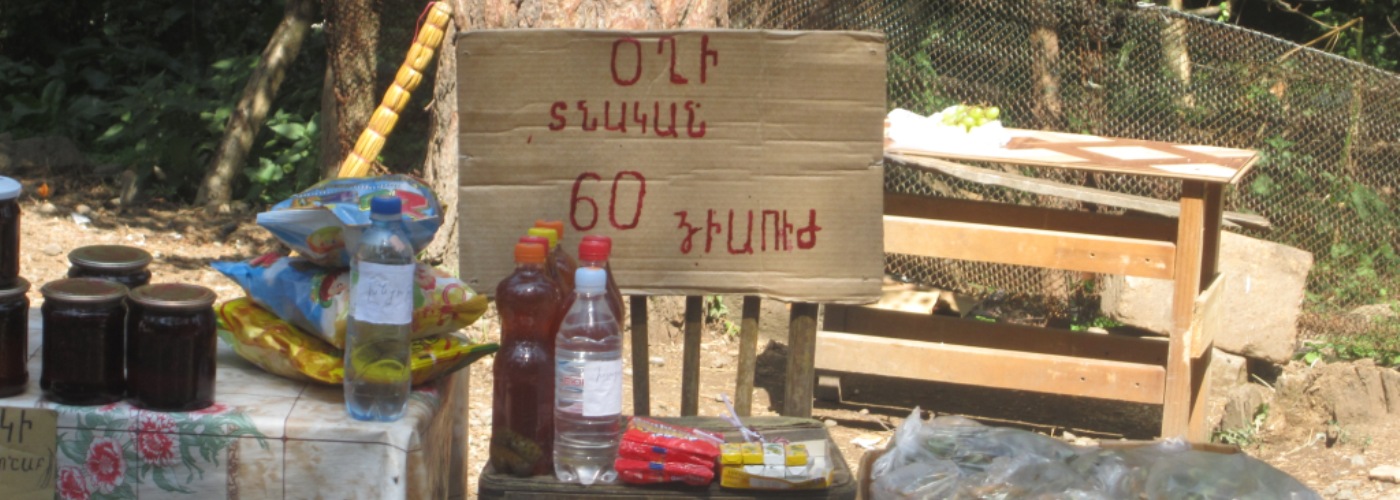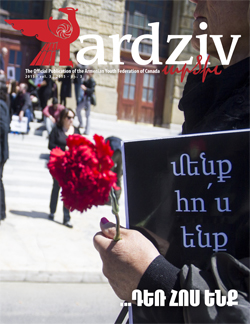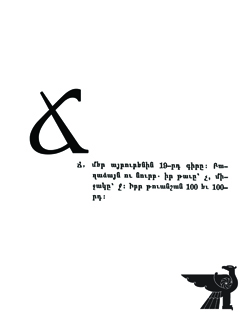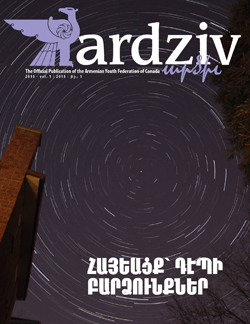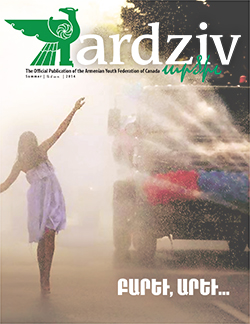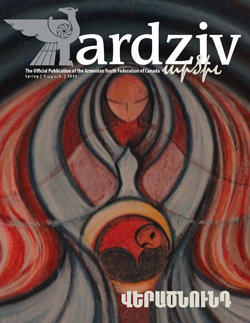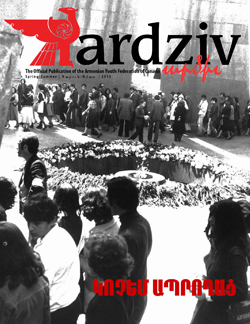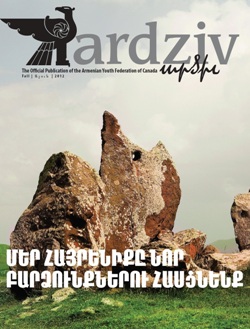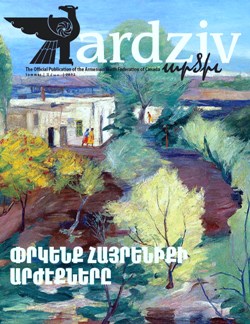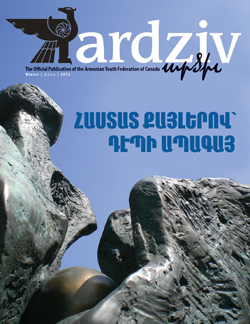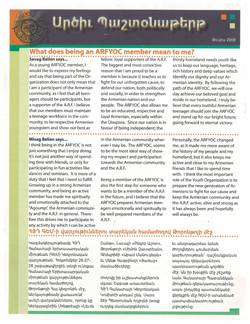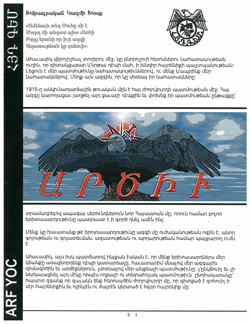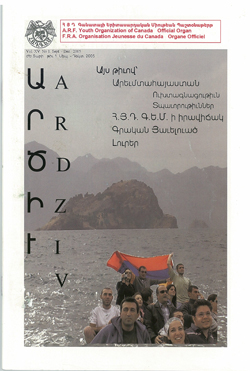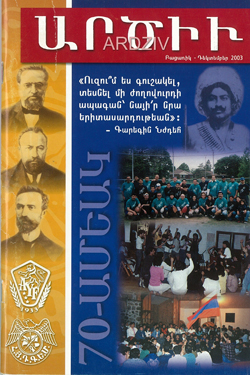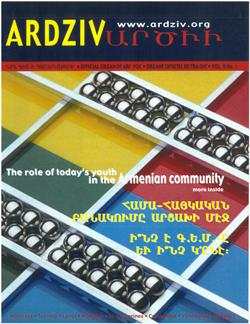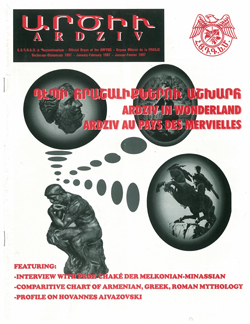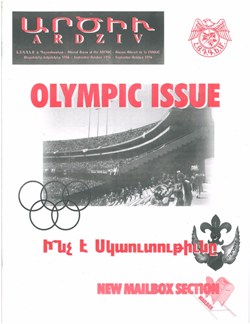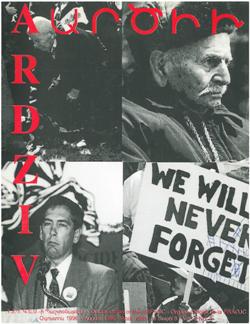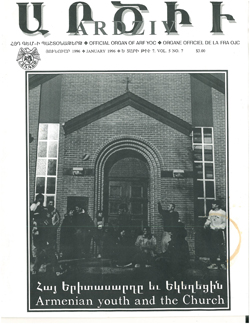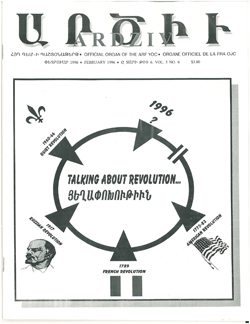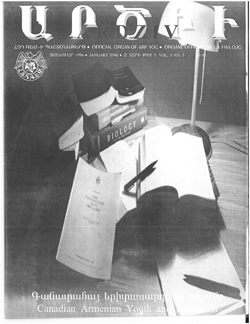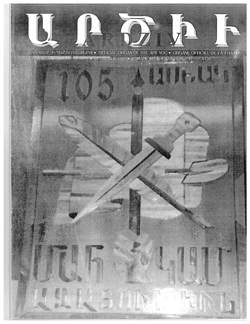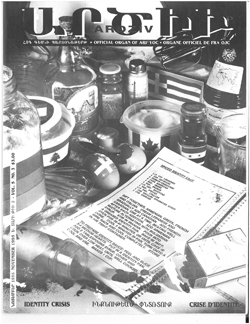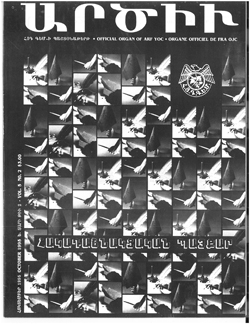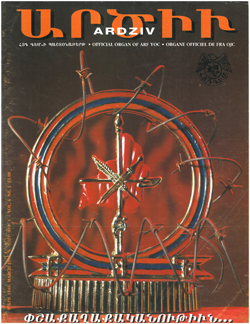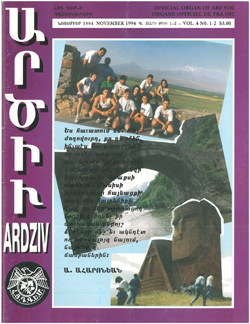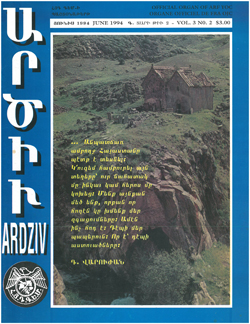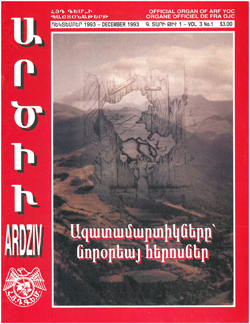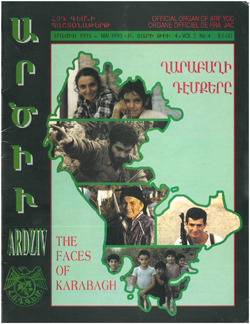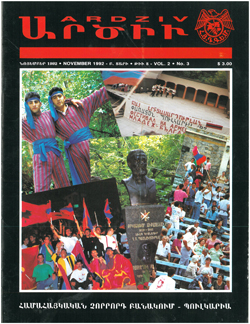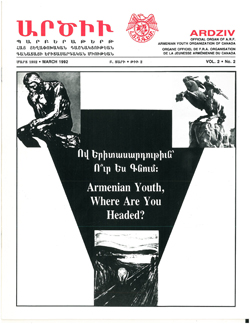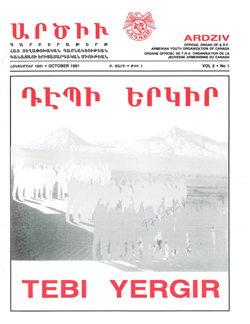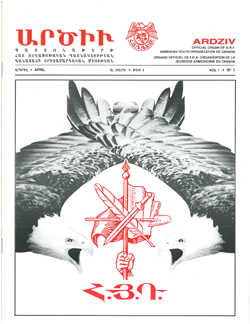Skip Water, Guzzle Vodka: Health hearsay in Armenia
By: Lena Tachdjian | Posted on: 04.03.2015Warning: Undefined array key "ssba_bar_buttons" in /home/u108981792/domains/ardziv.org/public_html/wp-content/plugins/simple-share-buttons-adder/php/class-buttons.php on line 602
Warning: Undefined array key "ssba_bar_buttons" in /home/u108981792/domains/ardziv.org/public_html/wp-content/plugins/simple-share-buttons-adder/php/class-buttons.php on line 602
Warning: Undefined array key "ssba_bar_buttons" in /home/u108981792/domains/ardziv.org/public_html/wp-content/plugins/simple-share-buttons-adder/php/class-buttons.php on line 602
Warning: Undefined array key "ssba_bar_buttons" in /home/u108981792/domains/ardziv.org/public_html/wp-content/plugins/simple-share-buttons-adder/php/class-buttons.php on line 602
I experienced many ‘firsts’ in Armenia. The first time I rode on a military truck or saw a cow leg being transported in a taxi was in Armenia. It was also the first place that I had ever heard the idea that “water makes you fat”—and heard it repeated by coworkers, friends, strangers, bosses and students. My first double-take at this “fact” was after my boss had finished her seventh cup of coffee before the end of the work day and was wondering aloud about why she was experiencing yet another headache. The reality was, my “tourist” stainless steel water container was always made fun of in the office and I couldn’t remember the last time I had seen her reach for a glass of water, so I had reason to suspect she was getting her frequent headaches from dehydration—and the coffee was only adding to that. As I casually asked her if she had been alternating her coffees with water throughout the day, she immediately replied with “bayts ouzoum em niharel” (but I want to lose wight). For the next half an hour, work was put on hold in our office because everyone had joined in on the ‘water debate’. While no resolution was agreed upon, it became clear that my boss (and so many others) had never became accustomed to drinking any water on its own because, as she put it, it was known to make you “chagh” (fat). What surprised me more than this sentiment was the number of people in our office that agreed with her- some who extolled its benefits but would take a pass so as not to suffer the aforementioned bogeyman consequences.
Surprisingly to my innate North American sensibilities, throughout my 3+ years of living in Armenia, I have heard this rationalization more times than I could possibly count – by youth, by elders, by professionals, by students, by men and by women. When I held a nutrition workshop at SheFighter’s Self-Defense classes, my encouragement of making sure to remain hydrated was surprisingly the most ‘controversial’ thing I said. While many seemed to hold steadfastly to their negative views on water, few had given me actual reasons as to why—usually confirming it was “grandmother wisdom”. And you don’t question grandmother wisdom. I would soon come to discover the many health myths floating around as accepted truth in Armenia.
Vodka as a universal heal-all miracle beverage is another one of my favourite ones. You could have a cold, have hurt your back, have a fever, have indigestion, etc., and most local Armenian families would just tell you to take a shot of homemade vodka. The only exception was when my roommate was told by her then host-father to “snort the vodka” for a cold she had caught. Whether she did it or not will remain her secret. I remember during a trip to Artsakh, my host-family had a great breakfast spread – filled with vegetables, fruits, cheese, eggs, bread and honey, and a Jermuk bottle filled with homemade mulberry vodka. Our host dad poured all of us a shot—despite our protests, and told us it would keep us warm and healthy in the winter – it was essentially ‘preventative medicine’. We decided not to argue and had a buzzed morning—healthy and warm as an ox.
Alongside staying away from water and guzzling vodka, another trend that is hard to miss is the high intake of white bread. With every meal, there is a basket of white bread – often with dishes that have no use for it. A particularly vivid anecdote in this regard was when we decided to eat dinner at the office together after a long and draining day. My coworkers had made fried potatoes, pasta, boiled vegetables and had tomatoes, cucumbers, cheese and yogurt as well. We all sat to eat and my boss pointed out there was no bread. Even though there were potatoes and pasta, we essentially had to wait until her son ran to the quickest shop, bought two large loaves of white breads, cut them up, and placed them by our food for the meal to be complete. Once my friend’s host-grandfather even told her to eat bread with her meals so that her “stomach wouldn’t hurt”.
However absurd and counter-productive some of these widely-held ideas may seem to us, by asking questions and setting aside our judgement, it is compelling to hear the reasons behind their apparent madness. The “water-makes-you-fat” myth is one where no matter how much I disagree with (sorry Tatik!), I can understand the often closely linked advice that comes with it: avoiding quickly chugging water. As explained by my host-sister, common thinking dictates that water would make you fat because when you have too much in one time, you become bloated. While that is right, it seems a little bit of ‘broken telephone’ happened along the way and the end message was that water itself can make a person gain weight.
With the high intake of white bread, after asking around, local friends told me that during the “dark years”, bread was of course the cheapest thing to buy in terms of food. So with every meal that was often too little, and especially in winter, they had an abundance of the cheapest food in order to actually get full. Some habits just die hard – especially when there was a reason for them at the time.
While there are many health myths in Armenia, there is also a refreshing amount of common sense when it comes to therapeutic and medicinal uses of herbs and plants. Armenia was the first place I had ever had nettle soup. Nettle, commonly seen as a weed in Canada, is used in teas and in food in Armenia. As an adaptogen high in iron, people obviously knew it was good for them and incorporated it into their eating habits. The same goes for mint and thyme. While in Canada I would have to go to health-food stores to get packaged and often processed forms of mint or thyme tea, in Armenia they are naturally dried and ready to use, and can be found anywhere from the shugas (markets) to chain supermarkets.
A popular dish that originated in Artsakh—jingalov hats (lavash bread stuffed with herbs), is said to have over twenty herbs in it (which include some that I mentioned), again, made during wartime; a time when people had to survive with whatever they could get their hands on. Armenia was also the first place I had ever eaten or heard of basoots dolma (Lenten dolma). While dolma itself has become a staple dish throughout the world, I have yet to see the basoots version anywhere else. It is a pickled cabbage leaf packed with three different types of beans and legumes, grains, and mixed with spices. Protein, combined with a shot of B12 in one dish. I would have to go to special vegan restaurants in Canada to find anything so nutritious…and pay quadruple the amount.
As is the case anywhere, there is the good, the bad, and the downright strange in Armenia. While I will continue to drink my water and encourage others to do the same, I have also learned so much from locals here on nutrition. And during the cold and harsh Armenian winter, a little extra vodka can be a good thing!
